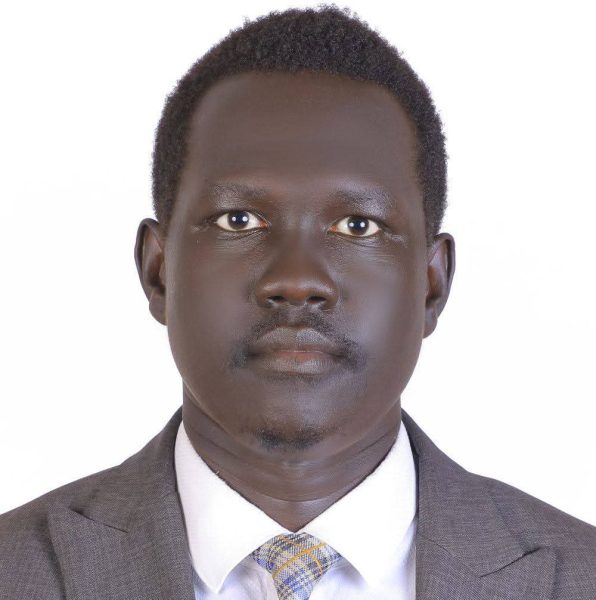
Juba, South Sudan, (June 1, 2025) – In many parts of the world, civic education on elections often demands countless workshops, seminars, training, and logistical planning – to help citizens understand the voting process and its significance. But in Twic East County of Jonglei State, South Sudan, such measures seem unnecessary. Here, democratic participation is not a foreign concept – it is part of the community’s culture and identity. This community seems to have embedded democratic values deep within its social fabric – requiring no lectures or training sessions to understand the importance of elections.
Located in the heart of Jonglei State, with Panyagor as its administrative headquarters, Twic East is one of South Sudan’s 79 counties. According to estimates from the 2015-2020 Population Projections of South Sudan, the county is home to more than 130,000 people. Over the years, Twic East has become known for its unique community governance, self-mobilization, and deep-rooted democratic spirit.
TECA and TEYA: A legacy of civic engagement
At the core of its civic strength are two institutions: the Twic East Community Association (TECA) and its youth wing, the Twic East Youth Association (TEYA). TECA operates as a non-political, community-driven body that champions the welfare of Twic East people, especially those residing in Juba, other towns and globally. It plays a pivotal role in uniting the community around shared values ranging from peacebuilding and education to emergency response and social development.
TEYA, on the other hand, represents the younger generation of Twic East. The youth association functions not just as a social or advocacy group but as an influential civic institution. At the TEYA Center in Juba, young people gather regularly to strategize on solutions for the challenges facing their community, design community projects, and mobilize support. The center serves as a think tank, campaign base, and project hub – all rolled into one.
Leadership roles within both TECA and TEYA are unpaid, yet highly respected. Candidates volunteer their time and energy with the single purpose of advancing their community’s development, driven by a sense of responsibility to give back to the community. Despite the lack of financial incentives, positions are ardently vetted, demonstrating the level of prestige and trust they carry.
The 2025 polls:
This year, TEYA is preparing for its normal leadership transition. After every two (2) years, the leadership tenure for any elected youth leader expires as stipulated in the Twic East Youth Association Constitution (TEYA) 2022 as amended 2024.
Slated for June 8, 2025, the polls have drawn five candidates competing for the top youth leadership post in Juba: they include; Mr. Deng William Kuir – Flag bearer of Twic East Forward (TEF), Mr. Bul Ajak Thieu – Flag bearer of Twic East Youth Vision for Development (TEYVD), Mr. Dut Atem Malek – Flag bearer of Twic East Alliance for Development (TEAD), Mr. Khot Jok Ajak – Flag bearer of Twic East Youth Solidarity Alliance (TEYSA), Mr. Adier Simon Deng – Flag bearer of Twic East Alliance Network (TENA) respectively.
What makes this race unique is the diversity among the candidates. Each contender, along with their deputies and campaign teams, come across five (5) payams (administrative divisions) of Twic East County. This broad representation reinforces inclusivity and balances the political landscape, giving voice to all sub-communities within the county.
About 5,000 youth members of the association between 18 to 45 years have already registered earlier to vote. Prior to election day, open-air campaigns will be held on June 7, providing a public platform for candidates to present their visions and policy priorities to win the hearts of the voters. At the end of every election, all the community political parties are paused and all the energies are directed to TEYA as the only recognized youth body in the community.
At the Centre of Integrity:
The elections are overseen by an Independent Electoral Committee (IEC) composed of respected community members with a track record of impartiality. Known for its transparency and adherence to ethical standards, the IEC is expected to announce the results promptly on June 8, right after the votes are tallied.
What is truly remarkable is that the entire process – from nomination and campaigning to voting – is free from national political interference. The community has deliberately kept party politics at bay, focusing instead on leadership that is accountable, homegrown, and responsive to the grassroots.
This shows a rare political maturity. In a country still navigating the complexities of post-conflict recovery, Twic East sets a clear example of how civic agency and democratic values can flourish when grounded in cultural integrity.
Twic East Strategy: A model worth imitating:
As the saying goes, it is better to fail in originality than to succeed in imitation. The people of Twic East have demonstrated that meaningful elections don’t require millions of donor dollars or complicated training manuals. What’s needed is a strong sense of purpose, shared values, and community trust.
By relying on grassroots organization, inclusive representation, and ethical leadership, Twic East has created a sustainable, community-owned democratic model. It is a valuable case study not just for other counties in South Sudan, but also for communities across Africa that are seeking ways to strengthen local governance and participatory politics.
As the youth of Twic East prepare to go to the polls, they are not only choosing a leader – they are reaffirming their commitment to civic responsibility, transparency, and unity. Indeed, this is a model worthy of emulation – one that offers valuable lessons for other communities across South Sudan and beyond.
And for that, no seminar is required.
Manyuon Mayen Manyuon-tongmachar is a South Sudan-based media practitioner, writer, essayist, and editor, as well as an academic. He hails from Twic East County, Jonglei state.
He’s also a former UN fellow on peace-building and human resource development, Hiroshima Peace-builders Center (HPC), Tokyo and Hiroshima cities, Japan, 2020.
He can be reached via this email address: manyuondavidmayen@gamil.com
WhatsApp: +211(0)924666268

